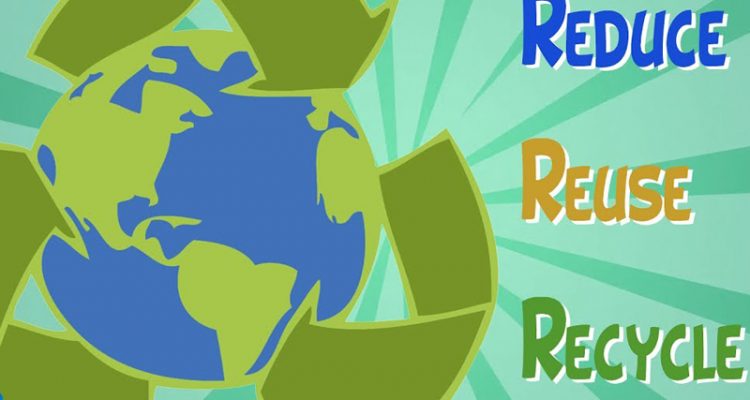Environmental awareness has never been higher, especially among school-goers in this era, with many an international school being operated on a green campus, or even with environmentally conscious classes or lesson programmes.
Parents and students with a green thumb can start recycling even at home, with many household items being the standard starting point to begin re-cycling and re-purposing materials on a regular basis.
Some of the most common recyclables and the proper way to recycle them are detailed below, with an eye for young children to familiarise themselves with becoming an environmentally-aware global citizen.
-
Paper
Paper makes up the biggest amount of solid waste generated every year in cities, at 25% of total thrash. According to the American Environmental Protection Agency (EPA), citizens there recycled almost 66% of used paper in 2017- that recycled paper is reused to make new paper products, conserving natural plant resources.
Many community and office recycling programmes accept paper products, often segregated from other recyclables for easier re-consumption. At the same time, if you’re out shopping, you can look out for paper products made from recycled paper.
-
Gift Wrapping & Bags
When buying presents for a festive occasion, consumers should look out for gift wrap that is made from recycled material, or that can be recycled. This is because a lot of gift paper is made with laminated or shiny foil material, which is not accepted or recyclable for many recycling centres.
To avoid that altogether, consumers can use decorative gift boxes instead, bypassing wrapping paper all the way. Gift wrap and gift bags should also ideally be reused for the next occasion or birthday, instead of being thrown away after a single use- so don’t write on them! Use a removable sticker instead.
-
Batteries
Most dry-cell batteries can be recycled, including AA, AAA, 9-volt made from alkaline and zinc; certain cylindrical, button & rectangular batteries made from mercury oxide, silver oxide, & zinc-air; and including rechargeable lithium batteries.
To dispose of these batteries, look for the specific battery recycling bins placed in stores or at community collection events.
-
Plastic(s)
Of the 35 million tonnes of plastic generated in the U.S. in 2017, only 8.4% was recycled. Certain plastic materials get recycled more frequently than others. Look for identifiers or recycling symbols on the bottom of plastic products, to see if they match the recycling symbols at your local recycling programme.
Reduce waste usage by purchasing products made from recycled plastic materials.
-
Glassware
26.6% of out of 11.4 million tonnes of glass generated in 2017 was recycled in the States. Many people might not be aware that glass products, particularly food & beverage containers, can be repeatedly recycled over and over again.
In fact, making new glass from recycled glass is generally cheaper to produce than from scratch. Many community recycling programmes accept assorted glass pieces mixed together, and their sorted into their individual colours and types at the recovery facility.
-
Used Motor Oil
When the parents change the oil in their automobiles, the used oil should always be recycled to make new motor oil. According to the American EPA, it takes a staggering 42 gallons of crude oil to produce 2.5 quarts of new motor oil, but requires one gallon of used oil to produce the same amount!
Besides better consumption of oil resources, reusing the oil means it’s not being dumped down the drain and contaminating the water supply- because the oil from just one oil change can contaminate one million gallons of fresh water.
In America and certain other countries, many auto garages and supply stores that sell motor oil will possibly accept motor oil for recycling purposes.
-
Tires
Old tire piles are susceptible to catching fire and are prone to attracting pests including rodents. Used tires can be returned to your local tire retailer or a local recycler which processes tires.
Some community events might also accept tires for recycling. In addition, many car garages are required to take and recycle your old tires when you come to have new tires installed.


Congratulation!